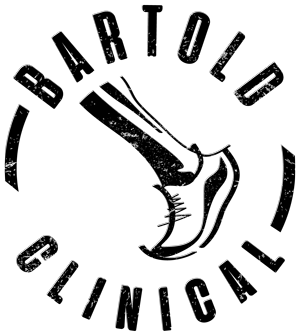
Today is an important moment in history… introducing (drum roll please), The Bullsh*t Detector, aka, me!
It was suggested to me during a recent trip to the USA, by my old and dear friend Terry, that I should write some pieces that explode some of the myths that have, without decent evidence, become enshrined as fact.
What fun!
I will make these article open access, so hopefully we can get a bit of discussion going. Remember the rules, no name calling or I will ban ya!
First up, I thought we might take a look at a topic that I have been pondering over for some time.
The use of Medicinal Cannabis.. does it work, or is it just another way to ingest the ‘ol whacky week?

There’s been many a headline of late about the use of cannabis for medical purposes.
But is there evidence to support doctors’ prescribing of cannabinoids, the chemical components of the plant that give it its effects? For what conditions?
And in what form? Should users be smoking the whole plant or taking synthetic cannabinoids via a prescription medicine, for example?
Professor Michael Farrell is the Director of the National Drug and Alcohol Research Centre (NDARC) and he is all about the evidence.
A while back, he published a paper entitled “Should doctors prescribe cannabinoids?” and followed this up with an enlightening interview in which he discussed the evidence surrounding the use of cannabis for chronic pain, nausea and multiple sclerosis, and also traversed some other common questions such as the risk of psychosis or cognitive decline and impacts on users’ motivation levels.
Now I have recently been in New York City to present at a conference, and had to wade my way through a blue haze of dope smoke every morning during my walk. Cannabis has recently been legalised in New York State, and the good burghers of New York City have taken it up with rare enthusiasm!
Now do not get me wrong, I have no opinion either way on this issue, and make zero judgment on people’s personal choices..
with the exception of the dozens of school children I observed on street corners, in uniform, at 7.30am, hoeing into large spliffs. My question would be.. what is that gonna do to the user’s motivation levels?

Does Mr Garrison have it right?
I can’t wait to hear what Professor Farrell has to say!
OK, so like many things we discuss here at Bartold Clinical, we really do want to follow the evidence right?
So in relation to medicinal cannabis we need a balanced and measured approach to the evidence around treatment efficacy. If there is strong evidence, sign me up. If not, then we need to proceed with caution.
Let’s start by looking at the effect of medicinal cannabis on pain
Pain is a very subjective thing, so actually getting very good measures of pain and understanding where the effects are can be quite complicated. We have all sorts of problems with chronic pain, even understanding the nature of pain and why we should medicate it or what we should do and what’s best is a very broad discussion.
So the big question is, “what is the evidence for the efficacy of medicinal cannabis on pain relief.”
The answer is that in the published literature, the evidence is very conflicted. The strongest summary for the efficacy of cannabis in the treatment of chronic pain is that it is modest.
Probably the best evidence is around multiple sclerosis (MS) and using it for spasm and some of the spasm pain in multiple sclerosis, and this has led to cannabis type medications in quite a number of countries being authorised for medical use.
There remain concerns around people using it for MS in that it may be associated with cognitive decline in MS. So that’s one of the potential adverse effects of using it with MS. But that has to be offset with the benefits of pain and spasm reduction.
The effect of medicinal cannabis on nausea and vomiting
The use of cannabis or a cannabis derived compound for nausea and vomiting is what really got the ball rolling more than 30 years ago.
Now, when we look at any type of clinical intervention, we are not just looking for efficacy, we are looking at comparative efficacy.
In other words, what is the best available practice, what is the best medication in terms of efficacy and potential side effects. And this is where medicinal cannabis has faded into the background.

Nausea and vomiting very commonly are a part of the treatment regimes used in many forms of cancer (especially chemo and radiotherapy). And medications for these symptoms have improved dramatically over the past few years.
So right now we have more effective medications, with less side effects, than medicinal cannabis. Thus from that point of view where cannabis now fits in in comparison to years ago is far more difficult to support.
The effect of medicinal cannabis on weight loss
Some medical conditions, most noticeably established AIDS, are accompanied by rapid and profound weight loss, and this has attracted great interest in a potential benefit of cannabis, namely that it gives you “the munchies” (i.e. a desire to eat like a horse). Could the appetite stimulation effect of cannabis therefore be a legitimate reason to prescribe it to this and similar populations.
Well, yes, HOWEVER, the arrival of the antiretroviral drugs, most importantly AZT, allowed people with AIDS and similar condition to fairly quickly and safely regain a healthy weight. And so the potential role of something like cannabis moved into the back seat.
Since then there hasn’t been a lot more work advanced on it, primarily because of the effectiveness of AZT.
The wrap up

This is why, with the exception of 2 products:
- Epidyolex (cannabidiol), which is indicated for use as adjunctive therapy of seizures associated with Lennox-Gastaut syndrome or Dravet syndrome for patients 2 years of age and older.
- Sativex Oromucosal Spray (nabiximols), which is indicated as treatment for symptom improvement in patients with moderate to severe spasticity due to multiple sclerosis who have not responded adequately to other anti-spasticity medication and who demonstrate clinically significant improvement in spasticity related symptoms during an initial trial of therapy.
medicinal cannabis products are not registered on the Australian Register of Therapeutic Goods (ARTG) and, like most other countries, are not available as registered prescription medicines.
There is also not much information available to help doctors determine the most appropriate and safe doses while minimising potential side-effects. Importantly, at the moment, relatively few studies compare the effects of medicinal cannabis products against currently approved treatments for various conditions and symptoms. In addition, most of the studies reported in the medical literature have either used purified pharmaceutical substances or smoked cannabis.
As there is limited scientific evidence to support the use of medicinal cannabis in most conditions, and in many cases the evidence is for its use together with other medicines, it should be used only when approved treatments have been tried and have failed to manage conditions and symptoms.
So, despite the public clamouring, and claims of miracle cure with the use of medicinal cannabis, the reality is that these claims are NOT for the most part evidence based.
Beware the bandwagon .
Written by
Simon Bartold
Founder and Director
Bartold Clinical




Leave a Reply
You must be logged in to post a comment.